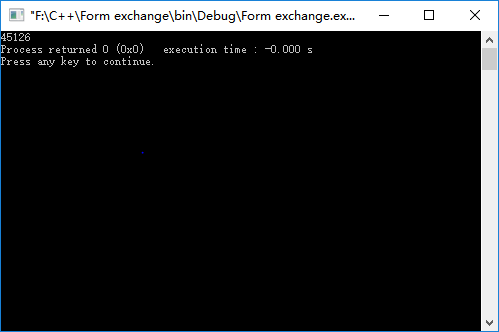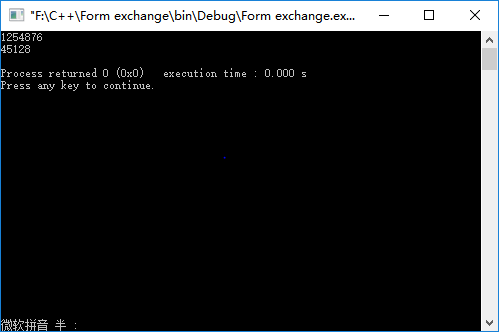常用的转换方法:
-
流转换
-
STL标准函数库中函数转换
流转换
流转换主要是用到了<sstream>库中的stringstream类。
通过stringstream可以完成基本类型间的转换,
1 #include<sstream> 2 3 using namespace std; 4 5 template<typename out_type, typename in_value> 6 7 out_type convert(const in_value & t){ 8 9 stringstream stream; 10 11 stream << t; 12 13 out_type result; 14 15 stream >> result; 16 17 return result; 18 19 }
STL函数转换
标准函数库里包含了基本类型间转换的函数,在库<stdlib.h>中。
基本的函数:
itoa():将整型值转换为字符串。
ltoa():将长整型值转换为字符串。
ultoa():将无符号长整型值转换为字符串。
gcvt():将浮点型数转换为字符串,取四舍五入。
ecvt():将双精度浮点型值转换为字符串,转换结果中不包含十进制小数点。
fcvt():指定位数为转换精度,其余同ecvt()。
atof():将字符串转换为双精度浮点型值。
atoi():将字符串转换为整型值。
atol():将字符串转换为长整型值。
strtod():将字符串转换为双精度浮点型值,并报告不能被转换的所有剩余数字。
strtol():将字符串转换为长整值,并报告不能被转换的所有剩余数字。
strtoul():将字符串转换为无符号长整型值,并报告不能被转换的所有剩余数字。
每个函数的参数不尽相同,比如
char* itoa(int value, char* string, int radix)
含义:将整数value转换成字符串存入string, radix为转换时所用基数(保存到字符串中的数据的进制基数 2 8 10 16)
int atoi(const char* nptr)
含义:跳过前面的空格字符,直到遇上数字或正负符号才开始做转换,而再遇到非数字或字符串结束时('\0')才结束转换,并将结果返回。
如此看来,这种方法就没有流转换灵活,方便。
实例:
(使用流转换)
#include <iostream> #include <sstream> using namespace std; template<typename out_type, typename in_value> out_type convert(const in_value & t){ stringstream stream; stream << t; out_type result; stream >> result; return result; } int main() { char xxx[10] = "45126"; int i = 45641; i = convert<int>(xxx);//字符串转换为整型 cout << i; }
结果:

(使用STL函数)
#include <iostream> #include <stdlib.h> using namespace std; int main() { int i = 1254876; char x[10]; itoa(i, x, 10); cout << x << endl; int n; char* y = "45128"; n = atoi(y); cout << n << endl; }
结果:
